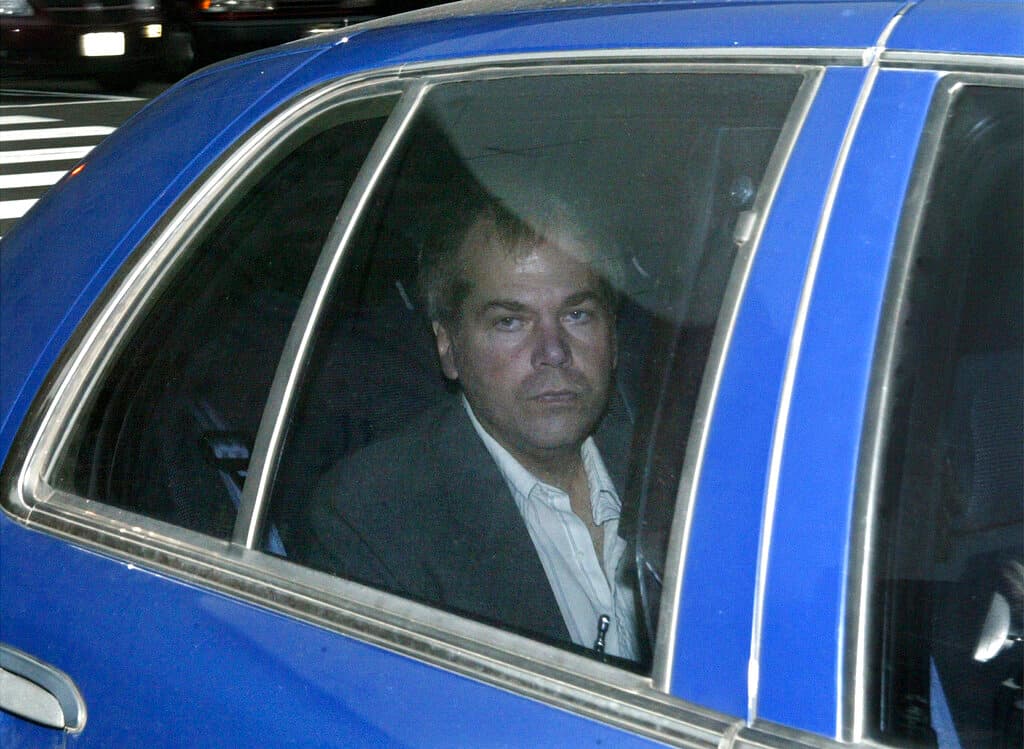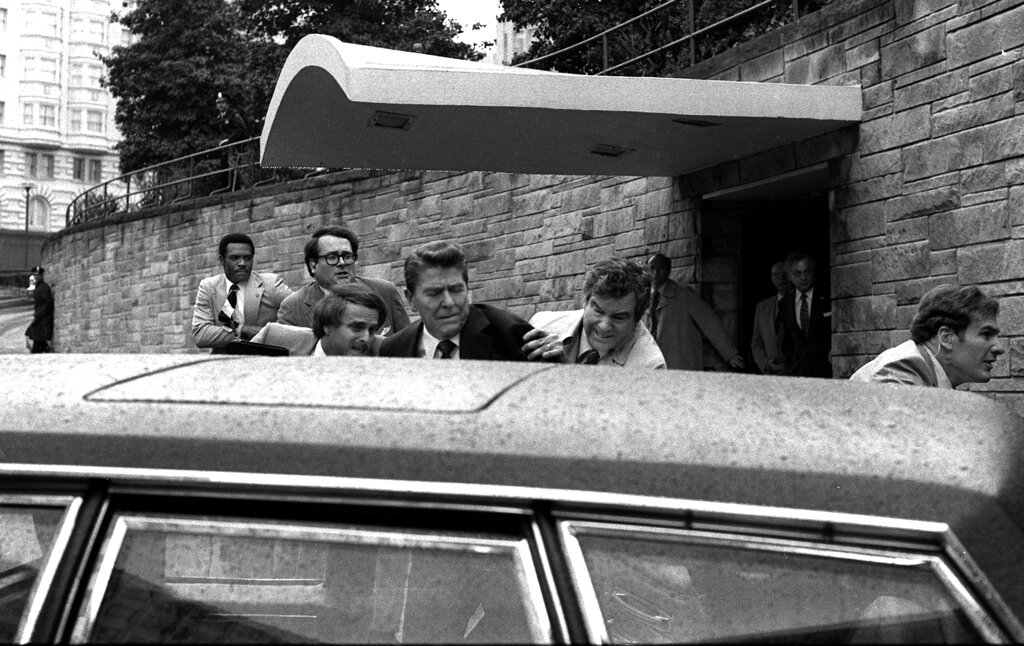Court Prepares To Set Would-Be Reagan Assassin Free
The Biden administration has said it would not oppose lifting the remaining restrictions if John Hinckley Jr. followed the rules and ‘remained mentally stable.’

Today, in a little-noticed hearing, a court appears likely to set free the man who shot an American president and inflicted catastrophic brain injuries on his press secretary, giving hope to others who’d repeat his crime.
John Hinckley Jr.’s name was set to live in infamy after he wounded President Reagan in 1981. At the time, TV’s “The Greatest American Hero” even changed the name of its main character to Hanley from Ralph Hinkley.
However, when Reagan recovered, it switched back. A near miss wasn’t considered as fatal and crippling a press secretary didn’t rise to the level of being worth the rewrites.
After a federal judge in Washington ruled last year that Hinckley could be freed, the Biden administration said it would not oppose lifting the remaining restrictions if he followed the rules and “remained mentally stable.”
United States attorneys sent a letter to the court a week ago declaring that Hinckley had met those goals. He’s now set to be to walk free — freedom he says he’ll use to pursue his music career.
“Contrary to the judge’s decision,” the Ronald Reagan Presidential Foundation and Institute said in a statement last year, “we believe John Hinckley is still a threat to others and we strongly oppose his release.”

Four American presidents have been slain in office, and none of their assassins lived long enough to master the guitar. Unsuccessful gunmen targeted Presidents Jackson and Truman and President-elect Franklin Roosevelt, while a pair of women, in separate attacks, tried to shoot President Ford. None of those myopic marksmen ever had hope of finding venues for their guitar cycles.
Hinckley, we are told, had mental illness, got treatment, and so it’s all water under the bridge. The closest comparison is John Schrank, a New York City saloonkeeper who in 1912 put a bullet into the Bull Moose.
At the time, Theodore Roosevelt was running for a third, non-consecutive term after finishing out all but a few months of President McKinley’s and one of his own. Schrank opposed third terms after being plagued by nightmarish visions, so he “moved his little finger,” to quote the Stephen Sondheim musical “Assassins,” and tried to “change the world.”
A glasses case and folded speech slowed the bullet’s path to within an inch of taking Roosevelt’s life, just as — thanks to quick-thinking Secret Service agents — the Gipper cheated death in ’81. Although found incompetent to stand trial like Hinckley, America’s mercy didn’t extend to forgiving Schrank’s crime.
Ever.
A generation later, when TR’s cousin Franklin sought a third term, Americans knew right where to find Schrank: Wisconsin’s Central State Hospital for the Criminally Insane. Dr. R. A. Remley said that Schrank “was worked up” over FDR’s 1940 campaign and “that if he was free, he would take a hand in the matter.”
Schrank believed, Remley said, “that his mission in life was doing anything to avert a third term as president for anyone.” That this is what mattered, not that Shrank was otherwise “a very good patient.”
The doctor said, in words similar to those now used to describe Hinckley, that Schrank “was pleasant and cooperative and he never gave us a problem.” However, just to be safe, they kept him under lock and key, not touring with the Glenn Miller Orchestra.
Judging the human mind “sound” is tricky, and besides, letting people shoot presidents is bad for business. Ominous in Hinckley’s case is that he gunned down the Gipper to impress the actress Jodie Foster, who for 40 years has been dogged by the unwanted link.
John Hinckley earned life behind bars when he pulled that trigger, not life as a troubadour. Should we never hear from him again, we can count ourselves fortunate, but if he commits another act of infamy, we would know just who to blame: a justice system gone soft, even on would-be assassins of our greatest heroes.
________
Correction: Hinckley was not the first person to have been freed from prison after an attempt on the life of an American president; that fact was mis-stated in the bulldog edition.

